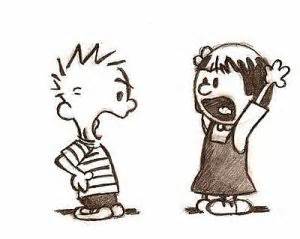Over a month ago, I traveled to Villanova, Pennsylvania, to attend the Realm Makers Conference, a writing conference for Christian speculative fiction writers. It’s the place  to be if you’re writing Christian fantasy, science-fiction, supernatural, steam punk or any other “weird” genre fiction that doesn’t fit nicely into other categories. To say it was a weekend of firsts for me is an understatement of epic proportions.
to be if you’re writing Christian fantasy, science-fiction, supernatural, steam punk or any other “weird” genre fiction that doesn’t fit nicely into other categories. To say it was a weekend of firsts for me is an understatement of epic proportions.
But first a little background story: many moons ago in a galaxy far, far away (AKA before I had children), I attended a Christian writers conference. I wrote romance at the time and had a manuscript to pitch to a publisher. (For my non-writing friends, a pitch is a chance to tell an editor, publisher, agent, or person of influence, about your story in the hopes that it catches their interest and doesn’t sit moldering in your filing cabinet). As my first manuscript, it wasn’t ready for publication (and never will be, although I learned a lot while writing it). During my appointment, the publisher was snide, condescending, and less than kind. I came home ready to hang my word processor up for good. Fast forward twenty years later, that incident still sticks with me, like bad Chinese take-out. So much so, that the thought of pitching anything more than laundry in a basket filled me with dread. Still, I had the opportunity at Villanova, and I hoped things had changed in the years while I was off building a family.
My first “first” was the chance to attempt a pitch and leave with a positive experience. Did I want a publishing contract? Yes. But my most pressing need was to leave with the knowledge that I should keep pursuing my dream, I wasn’t a hack, and editors/agents/publishers were nice people who wanted to help writers who were serious about their craft. Mission accomplished. At the end of the weekend, I completed two successful pitches, and all the publishers I talked with were genuinely nice people.

My second “first” was the opportunity to participate in a cosplay event. For the awards banquet the second night, we were instructed to dress up in our favorite fandom. Being the fantasy writer that I am, I pulled out my trusty sewing machine. After watching waaaaay too many You tube videos, I pulled together a medieval mercenary outfit (or at least my interpretation of one), complete with a sword and sheath, and a matching corset and bracers set. It was loads of fun, and I came away impressed with everyone else’s costumes. Doctor Who? He was there. Rapunzel with her frying pan? Also there. At our table, a Vulcan sat next to an elegant vampire (who did NOT sparkle. I’m thinking Stephanie Meyer might have made that up). A couple Reys’ from The Force Awakens, as well as elves, fairies, ladies-in-waiting, and superheroes were scattered throughout the room.
My third “first” was the chance to be in a Nerf war. People, unless you’ve done this before, you’ve no idea how much fun you’re missing! I picked up an inexpensive Nerf gun with LOTS of ammunition before the conference, and came away with the desire to do this a lot more (so much so, that I bought three extra Nerf guns—one for each member of my family!) The conferees split into two teams, named Fury and Doom, and took over two floors of the one dorm. I had so much fun shooting foam bullets at the dude hanging out in the stairwell.
At the conference, I made friends and met face-to-face virtual friends I knew only from the internet. Despite my social anxiety and awkwardness, I came home with a new “tribe,” a group of people who understood what I wrote, and why I wrote it. It’s been a long time since I’ve felt comfortable with strangers that quickly. There were no awkward conversations that went like this:
Friendly Individual turns to me with a smile. “What do you write?”
“Speculative fiction. It’s a portal fantasy, you know, like Narnia.”
“Oh.” The individual’s smile freezes as they nod uncertainly.
Conversation over.
The keynote speaker was Thom Locke (pen name for T. Davis Bunn). An eloquent speaker, he shared encouraging tips to get our butts in the chair and write. Despite authors’ love for writing, it can sometimes be intimidating and very difficult to carve out time to do this. I also attended classes on writing led by Kathy Tyers (Firebird Trilogy, and several Star Wars books) and bestselling author Tosca Lee (Iscariot, The Progeny, and others).
It’s over for this year. You missed it, your bad. But don’t despair because it’s an annual thing. Next year is the fifth anniversary, and it’ll be held in Reno. Bestselling author Ted Dekker will be the keynote speaker. Make the effort to attend this conference and come prepared for learning and fun. You won’t be disappointed.
 Our Christmas tree is still up, the tiny lights filling the living room with a soft glow. Unwrapped packages lay scattered under the tree, and a garbage bag of crumpled wrapping paper slouches in a corner, waiting for trash day.
Our Christmas tree is still up, the tiny lights filling the living room with a soft glow. Unwrapped packages lay scattered under the tree, and a garbage bag of crumpled wrapping paper slouches in a corner, waiting for trash day. But this year, I’ve found a weakness, a behavior I want to fix. I interrupt others, speaking over them as I cringe inside with embarrassment. I could blame it on self-centeredness, or social awkwardness, or narcissism (which, here we go again, makes me feel like a failure, because I don’t like to think I have those problems). But I’ve always talked fast and thought fast, and my amazing family loves me anyway. With people who don’t know me well, I struggle to keep my mouth shut when a thought pops into my head. I’m afraid I’ll forget it. But with 40+ years of living this way, I’m determined to end the rudeness. I’ve had a couple victories in the last week, and I’m looking for many more in 2017.
But this year, I’ve found a weakness, a behavior I want to fix. I interrupt others, speaking over them as I cringe inside with embarrassment. I could blame it on self-centeredness, or social awkwardness, or narcissism (which, here we go again, makes me feel like a failure, because I don’t like to think I have those problems). But I’ve always talked fast and thought fast, and my amazing family loves me anyway. With people who don’t know me well, I struggle to keep my mouth shut when a thought pops into my head. I’m afraid I’ll forget it. But with 40+ years of living this way, I’m determined to end the rudeness. I’ve had a couple victories in the last week, and I’m looking for many more in 2017.
 Imagine: you’re at home, you’ve finished the laundry teetering in the baskets, swept the floor, and your children (if you have them) are playing, happy, and quiet. (If they’re quiet, go check them. Now. You’ll thank me later.)
Imagine: you’re at home, you’ve finished the laundry teetering in the baskets, swept the floor, and your children (if you have them) are playing, happy, and quiet. (If they’re quiet, go check them. Now. You’ll thank me later.)
 to be if you’re writing Christian fantasy, science-fiction, supernatural, steam punk or any other “weird” genre fiction that doesn’t fit nicely into other categories. To say it was a weekend of firsts for me is an understatement of epic proportions.
to be if you’re writing Christian fantasy, science-fiction, supernatural, steam punk or any other “weird” genre fiction that doesn’t fit nicely into other categories. To say it was a weekend of firsts for me is an understatement of epic proportions.






